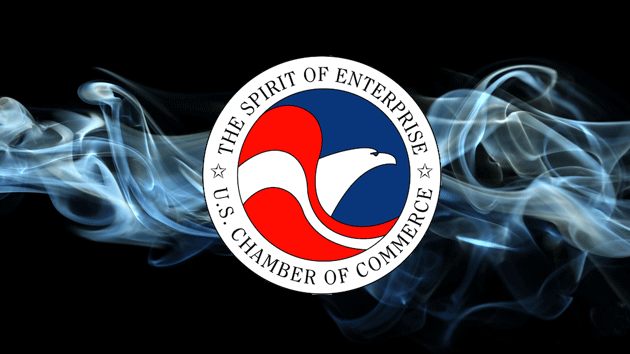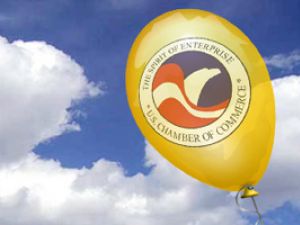
<a href="http://www.shutterstock.com/cat.mhtml?lang=en&language=en&ref_site=photo&search_source=search_form&version=llv1&anyorall=all&safesearch=1&use_local_boost=1&autocomplete_id=&searchterm=smoking&show_color_wheel=1&orient=&commercial_ok=&media_type=images&search_cat=&searchtermx=&photographer_name=&people_gender=&people_age=&people_ethnicity=&people_number=&color=&page=1&inline=112324787">Leigh Prather</a>/ShutterStock
The US Chamber of Commerce hasn’t just worked to thwart climate change legislation, obstruct health care reform, and pooh-pooh Wall Street regulations. The nation’s most powerful business lobby recently turned its attention to promoting cigarettes overseas, apparently using a rationale that corporations are, well, people:
“The Chamber regularly reaches out to governments around the world to urge them to avoid measures that discriminate against particular companies or industries,” the Chamber said in a short statement responding to a recent New York Times piece on its tobacco lobbying. Since 2011, according to the Times, the US Chamber intervened in at least nine countries and the European Union—either directly or through one of its many foreign affiliates—to oppose regulations designed to prevent smoking.
Moreover, according to a report released last week by anti-smoking groups, including the Campaign for Tobacco-Free Kids and Action on Smoking and Health, tobacco companies have joined US Chamber affiliates in 56 countries. Those companies also sit on Chamber affiliates’ boards or advisory councils in 14 countries—most of which happen to be places where people smoke a lot: Albania, Armenia, Estonia, Germany, Italy, Kosovo, Lithuania, Macedonia, Malaysia, Morocco, Poland, Serbia, the Slovak Republic, and Taiwan.
The report also highlighted previously unreported cases in which the US Chamber has gone to bat for its tobacco company members:
- Burkina Faso: In January 2014, the US Chamber sent a letter to Prime Minister Luc Adolphe Tiao warning that the country’s plan to implement graphic warning labels on cigarette packages violated international property rights and trade agreements. The threat of costly trade litigation delayed implementation of the law, according to government officials.
- Philippines: In 2012, the US Chamber and its local affiliate fought an effort to raise taxes on cigarettes, claiming it would create a black market. The commissioner of the Filipino Bureau of Internal Revenue recently told the local press that those fears have proved unfounded.
- United Kingdom: In 2014, the US Chamber released a joint statement with business groups and sent letters opposing a bill that would create standardized packaging for tobacco products. The bill “sends a negative message to the United Kingdom’s trading partners,” one letter said, “and undermines its reputation for the rule of law.” The bill passed in March 2015.
US Chamber CEO Tom Donohue’s most striking innovation has been to allow controversial industries to use the Chamber as a means of anonymously pursuing their political ends. The same politicians who might ignore a complaint from a tobacco company may listen when that complaint comes from a group that claims (albeit disingenuously) to represent 3 million businesses.
But the strategy comes with a risk in terms of its corporate clientele. Apple and Nike quit the Chamber over its stance on climate change, and CVS just parted ways with the group over its tobacco lobbying.














